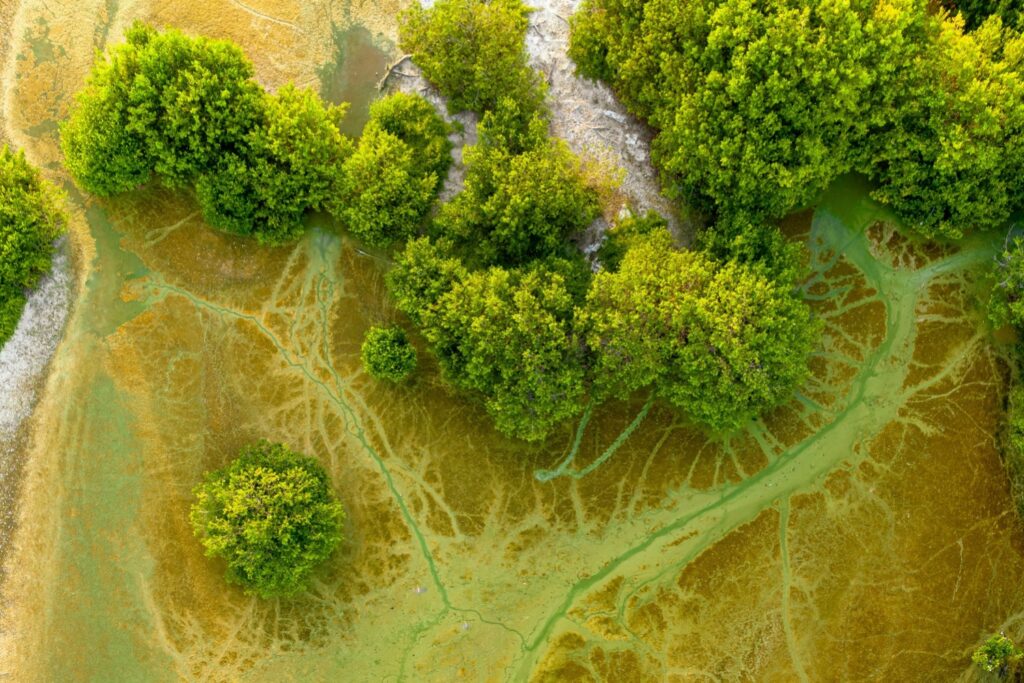
© Oxford University
A new Oxford University-backed analysis comparing carbon drawdown technologies has concluded that planting trees in Kenya offers the most cost-effective and rapidly deployable solution to the climate crisis, dramatically outperforming expensive technological alternatives across every metric.
“A Comprehensive Guide to Carbon Drawdown Technologies”, produced by UK charity Word Forest in collaboration with University of Oxford researchers, examines 12 different carbon removal methods using a comprehensive traffic light rating system to evaluate each technology across three critical metrics: cost of implementation, complexity of deployment, and carbon absorption capacity. The report’s findings include the following cost comparison:
- Direct Air Capture: “One of the most expensive forms of carbon removal” at $200-$1,000+ per tonne
- Biomass Carbon Removal: $100-200 per tonne
- Ocean Alkalinity Enhancement: $50-200 per tonne. Mineralising oceans could capture 1-27 Gt CO₂/year but faces implementation challenges
- Enhanced Weathering: Only 1 gigaton CO₂ removal by 2035 vs. current 40 gigaton annual emissions
- Reforestation in Kenya: Low cost, immediate deployment
“There are high-tech solutions that can help us draw down and lock in CO2, that tricksy greenhouse gas that’s causing meteorologists and scientists to have sleepless, fear-filled nights,” said Tracey West, Founder & President Emerita of Word Forest. “I hope with every fibre of my being that our report helps you cut through the carbon chaos. Plant trees in the tropics while you’re deciding which other squares to lay your chips on and you’ll help people, biodiversity, wildlife, weather systems and ultimately, our world. Until the other options are truly viable, you’ll get no better bang for your businesses’ buck than by backing food-bearing forests, you simply won’t.”
The report demonstrates significant advantages of tropical reforestation:
- Trees in Kenya grow up to 10 times faster than in northern latitudes
- Each tree absorbs approximately 0.25 tonnes of CO₂ within 5-7 years
- Kenya’s current 10% canopy cover offers vast expansion potential
- Reforestation scored green across all assessment metrics
The analysis also demonstrates that tropical reforestation provides exceptional return on investment, delivering immediate biodiversity, food security through fruit and nut trees, medicine production, employment opportunities, natural flood defences, and wildlife habitat creation alongside carbon sequestration – co-benefits absent from technological alternatives.
Word Forest has already demonstrated the viability of this approach, having planted around 1.4 million trees, delivered over 100,000 hours of environmental education, built classrooms and established women’s empowerment groups called “Mothers of the Forest” across Kenya.
In contrast, technological solutions face substantial challenges with limited short term benefits. The report notes that without investment into green fuels, DAC emits more carbon than it captures, while many solutions remain relatively embryonic options requiring years of development.
Clare Nasir, Met Office meteorologist, author, broadcaster, and Word Forest patron, commented: “In the fight against climate change, it’s often the simplest actions, like planting trees and building strong, educated communities, that yield the most profound and lasting impact. The work of Word Forest in Kenya is a testament to how grassroots solutions can draw down carbon and restore balance to our planet in the most natural and sustainable way.”
Report contributor Dominic Hurndall, Partner at Oaklin, added: “While the world faces three environmental crises – climate change, biodiversity loss, and environmental pollution – only one carbon reduction mechanism addresses all three: planting trees”.
The report calls for greater transparency in carbon offset markets and warns that without proper valuation mechanisms for forest restoration, technological solutions may continue to receive disproportionate investment despite their limitations.
About Word Forest
Word Forest is a UK-registered environmental charity focused on reforestation, education and community empowerment in Kenya. Founded in 2017, the organisation has planted over 1.4 million trees while supporting local communities through education and infrastructure development.
Report Authors Tracey West (Word Forest) and Daniel Bowen, Leigh Balment, Kiran Bahra (University of Oxford). Edited by Josie Bennett (Colyton Grammar School).
Source
Word Forest, press release, 2025-06-05.
Supplier
Oaklin Consulting
University of Oxford
Word Forest
Share
Renewable Carbon News – Daily Newsletter
Subscribe to our daily email newsletter – the world's leading newsletter on renewable materials and chemicals









